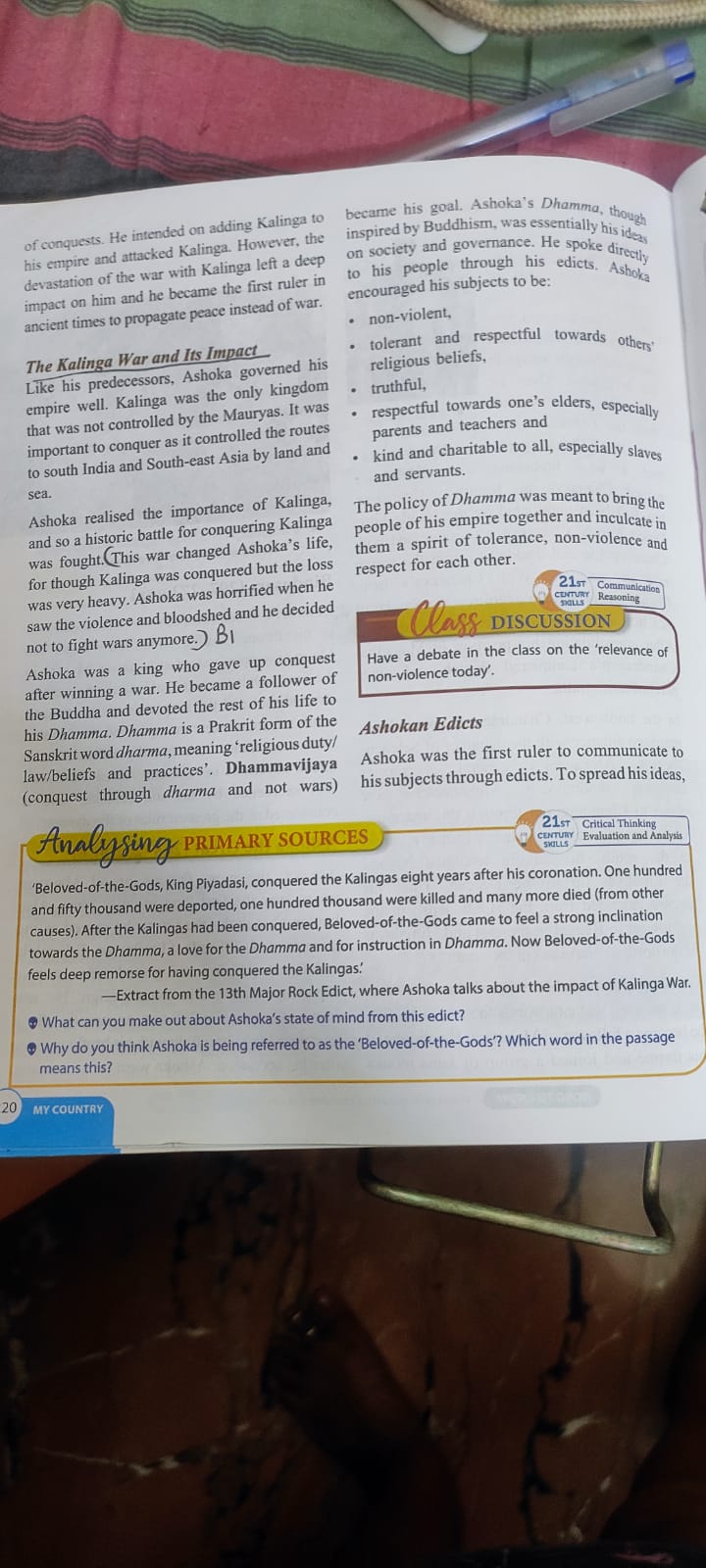What can you make out about Ashoka's state of mind from this edict? Why do you think Ashoka is being referred to as the 'Beloved-of-the-Gods'? Which word in the passage means this?

Understand the Problem
The question is asking about the implications of Ashoka's edict regarding his state of mind after the Kalinga War and what is meant by him being referred to as 'Beloved-of-the-Gods'. This suggests a focus on Ashoka's transformation and the principles he endorsed following the war.
Answer
Ashoka felt remorse. 'Beloved-of-the-Gods' is due to Dhamma. 'Devanampiya' means this.
The final answer is that Ashoka felt remorse after the Kalinga war. He is referred to as the 'Beloved-of-the-Gods' due to his transformation and promotion of Dhamma post-war. The word 'Devanampiya' means 'Beloved-of-the-Gods.'
Answer for screen readers
The final answer is that Ashoka felt remorse after the Kalinga war. He is referred to as the 'Beloved-of-the-Gods' due to his transformation and promotion of Dhamma post-war. The word 'Devanampiya' means 'Beloved-of-the-Gods.'
More Information
Ashoka's reference as 'Beloved-of-the-Gods' illustrates his shift to Buddhism and humanitarian rule, contrasting with earlier conquests.
Tips
Common mistakes include assuming Ashoka's remorse was immediate rather than a gradual realization.
Sources
- Edicts of Ashoka - Wikipedia - en.wikipedia.org
AI-generated content may contain errors. Please verify critical information